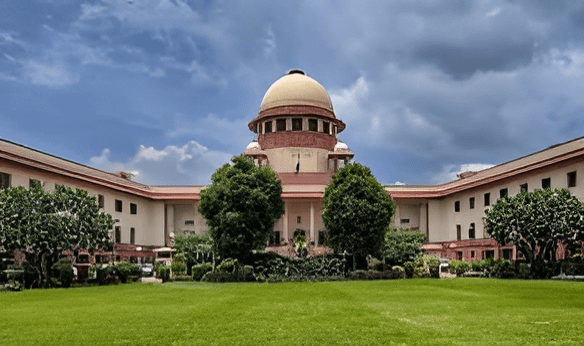SAKSHI PARDHE
27 MARCH 2025

The Supreme Court of India has provided significant guidance on the procedures magistrates must follow when issuing summonses to accused individuals in criminal cases. These directives aim to ensure that the initiation of criminal proceedings is grounded in a thorough judicial examination of the available evidence, thereby safeguarding individuals from unwarranted legal action.
Requirement for Reasoned Summoning Orders
In the case of M/S. JM Laboratories and Others vs. State of Andhra Pradesh and Another (2025), the Supreme Court emphasized that magistrates must provide explicit reasons when issuing process against accused persons. The Court held that the absence of such reasoning could lead to the quashing of proceedings, underscoring that criminal law cannot be set into motion arbitrarily. This decision highlights the necessity for magistrates to apply their minds to the facts and evidence before them, ensuring that the accused are informed of the basis for the charges against them.
Magistrates’ Discretion in Summoning Unnamed Individuals
The Supreme Court has also addressed the magistrate’s authority to summon individuals not named in the initial police report. In a 2022 ruling, the Court stated that magistrates possess the jurisdiction to issue summonses to persons whose names do not appear in the First Information Report (FIR) or the police report, provided there is prima facie evidence of their involvement in the offense. This underscores the magistrate’s duty to assess all materials on record to determine the necessity of summoning additional individuals.
Procedural Compliance Before Issuing Summons
In Shiv Jatia vs. Gian Chand Malick & Others (2024), the Supreme Court highlighted the importance of procedural compliance when magistrates issue summonses. The Court ruled that once a magistrate calls for a police report under Section 202 of the Code of Criminal Procedure (CrPC), they must await its submission before proceeding to issue a summons. This ensures that magistrates have adequate information before initiating criminal proceedings, particularly in cases that may essentially be civil disputes arising from commercial transactions.
Provisions Under the Bharatiya Nagarik Suraksha Sanhita, 2023
The Bharatiya Nagarik Suraksha Sanhita (BNSS), 2023, introduces specific provisions regarding the issuance of process by magistrates. Section 227 of the BNSS outlines that if a magistrate, upon taking cognizance of an offense, finds sufficient ground for proceeding, they shall issue summons in summons-cases or may issue a warrant or summons in warrant-cases. This section also mandates that no summons or warrant shall be issued until a list of prosecution witnesses has been filed, and in cases initiated upon a written complaint, the summons or warrant must be accompanied by a copy of the complaint.
Additionally, Section 228 of the BNSS allows magistrates to dispense with the personal attendance of the accused, permitting appearance through an advocate. However, the magistrate retains the discretion to direct personal attendance at any stage of the proceedings if deemed necessary.
These provisions and judicial pronouncements collectively underscore the imperative for magistrates to exercise due diligence, provide reasoned orders, and adhere strictly to procedural requirements when summoning individuals in criminal cases. Such measures are vital to prevent the misuse of the criminal justice system and to protect individuals from unwarranted legal harassment.
Sources